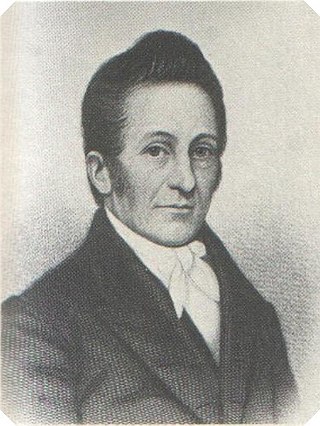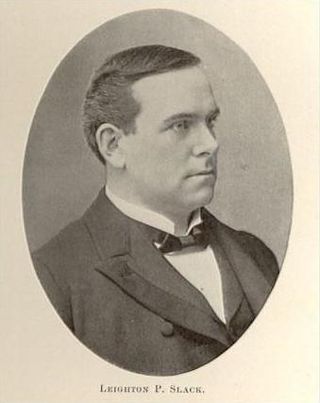Related Research Articles
Baker v. Vermont,744 A.2d 864,was a lawsuit decided by Vermont Supreme Court on December 20,1999. It was one of the first judicial affirmations of the right of same-sex couples to treatment equivalent to that afforded different-sex couples. The decision held that the state's prohibition on same-sex marriage denied rights granted by the Vermont Constitution. The court ordered the Vermont legislature to either allow same-sex marriages or implement an alternative legal mechanism according similar rights to same-sex couples.

The Massachusetts Supreme Judicial Court (SJC) is the highest court in the Commonwealth of Massachusetts. Although the claim is disputed by the Supreme Court of Pennsylvania,the SJC claims the distinction of being the oldest continuously functioning appellate court in the Americas,with a recognized history dating to the establishment of the Massachusetts Superior Court of Judicature in 1692 under the charter of the Province of Massachusetts Bay.

Robert Theodore Stafford was an American politician from Vermont. In his lengthy political career,he served as the 71st governor of Vermont,a United States representative,and a U.S. Senator. A Republican,Stafford was generally considered a liberal,or "Rockefeller Republican".
Same-sex marriage has been legal in Vermont since September 1,2009. Vermont was the first U.S. state to introduce civil unions on July 1,2000,and the first to introduce same-sex marriage by enacting a statute without being required to do so by a court decision. Vermont was the fourth state to legalize same-sex marriage after Massachusetts,Connecticut,and Iowa.

Richard Skinner was an American politician,attorney,and jurist who served as the ninth governor of Vermont.

Nathaniel Chipman was an American politician who served as a United States Senator from Vermont and Chief Justice of the Vermont Supreme Court. A Yale College graduate and Continental Army veteran of the American Revolution,Chipman became a prominent attorney and advocate for Vermont statehood. When Vermont was admitted to the Union,he served as the first judge of the United States District Court for the District of Vermont.

Beth Robinson is an American lawyer and judge from Vermont. She is a United States circuit judge of the United States Court of Appeals for the Second Circuit and is the first openly lesbian judge to serve on any federal court of appeals. Robinson served as an associate justice of the Vermont Supreme Court from 2011 to 2021.

Leighton Prosper Slack was a Vermont attorney and judge. He served as the 48th lieutenant governor of Vermont from 1910 to 1912 and as a justice of the Vermont Supreme Court from 1914 until his death.

Russell Smith Taft was a lawyer,politician and judge who served as the 29th lieutenant governor of Vermont and chief justice of the Vermont Supreme Court.
Frank Ray Keyser Sr. was an American politician,lawyer,and judge from Vermont. He was a lawyer in private practice and later a justice of the Vermont Supreme Court. His son F. Ray Keyser Jr. served as Speaker of the Vermont House of Representatives and later as governor of Vermont.

Olin Merrill Jeffords was a Vermont attorney and judge who served as chief justice of the Vermont Supreme Court. He was the father of Senator Jim Jeffords.
Denise Reinka Johnson is a Vermont attorney and judge. She was an associate justice of the Vermont Supreme Court from 1990 to 2011,and was the first woman to serve on this court. One of Johnson's most significant moments was her opinion in Baker v. Vermont in which a majority of the Supreme Court of Vermont ruled the state must establish civil unions for same sex couples. Johnson dissented,arguing that the court should have granted the plaintiffs marriage licenses instead.

The State of Marriage is a 2015 documentary film about the origins of the marriage equality movement,focusing on the decades of grassroots advocacy by lawyers Mary Bonauto,Susan Murray,and Beth Robinson and the 1999 Vermont Supreme Court case Baker v. Vermont. The film had its world premiere at the 2015 Provincetown International Film Festival on 18 June 2015. It is written and directed by Jeff Kaufman,and produced by Kaufman and Marcia Ross. Funding for the film's post-production and editing work was partially raised through a successful Indiegogo crowdfunding campaign.

John Pierpoint was a Vermont attorney and judge. He served as a justice of the Vermont Supreme Court from 1857 until his death,and was Chief Justice beginning in 1865.

John S. Buttles was an American attorney and judge. He served as an associate justice of the Vermont Supreme Court from 1937 to 1949.
Milford K. Smith was a Vermont attorney,politician,and judge. He is most notable for his service as an associate justice of the Vermont Supreme Court from 1959 to 1976.
Percival L. Shangraw was a Vermont attorney and judge. He is notable for his service as an associate justice of the Vermont Supreme Court from 1958 to 1972,and chief justice from 1972 until 1974.
Stephen Jacob was an attorney,politician,and judge during Vermont's years as an independent republic and the early years of its statehood. He served as a Justice of the Vermont Supreme Court from 1801 to 1802.

The Vermont Republic gubernatorial election of 1789 took place in September. Though incumbent Governor Thomas Chittenden won a plurality of the popular vote over his main competitor,Vermont Supreme Court Chief Justice Moses Robinson,the Vermont Constitution required that the legislature choose if no candidate won a majority.
William David Cohen is an American lawyer who has served as an associate justice of the Vermont Supreme Court since December 2019.
References
- ↑ Who's Who in American Law, 2002-2003. Marquis Who's Who. 2002. p. 11.
- 1 2 3 4 "Chief Justice Amestoy At VLS Commencement". www.ourherald.com. April 25, 2002.
- 1 2 3 "Bending Toward Justice". Valley News. January 15, 2016. Retrieved September 5, 2001.
- 1 2 "Cover story: Amestoy's way". Rutland Herald. May 18, 2002.
- ↑ "VT Elections Database » 1984 Attorney General General Election". VT Elections Database.
- ↑ Office of the Vermont Secretary of State, Vermont State Archives and Records Administration, "Justices of the Supreme Court, 1778–Present Archived April 15, 2012, at the Wayback Machine , p. 12.
- ↑ Tracey, Ed (April 26, 2018). "Top Comments: the Vermont Civil Unions edition". Daily Kos.
- ↑ Goldberg, Carey (February 10, 2000). "Vermont Panel Shies From Gay Marriage". New York Times. Retrieved July 13, 2013.
- ↑ "National News Briefs; Governor of Vermont Signs Gay-Union Law". April 27, 2000 – via NYTimes.com.
- ↑ Office of the Vermont Secretary of State, Vermont State Archives and Records Administration, "Justices of the Supreme Court, 1778–Present Archived April 15, 2012, at the Wayback Machine , p. 13.
- ↑ "Chief justice who made Vermont history now writes it". VTDigger. January 10, 2016.
- ↑ Remsen, Nancy (March 2, 2016). "Book Review: Slavish Shore by Jeffrey L. Amestoy". Seven Days.